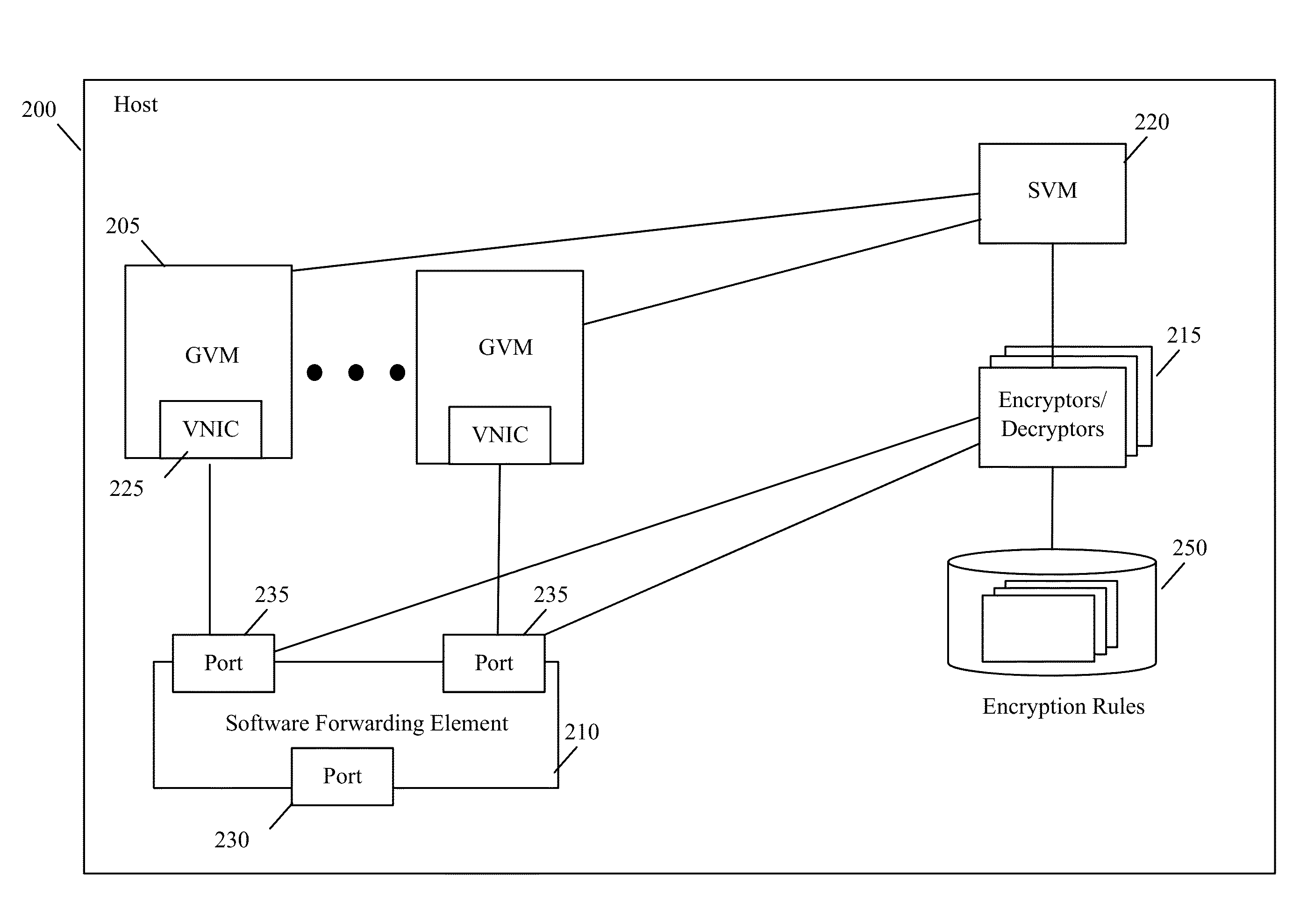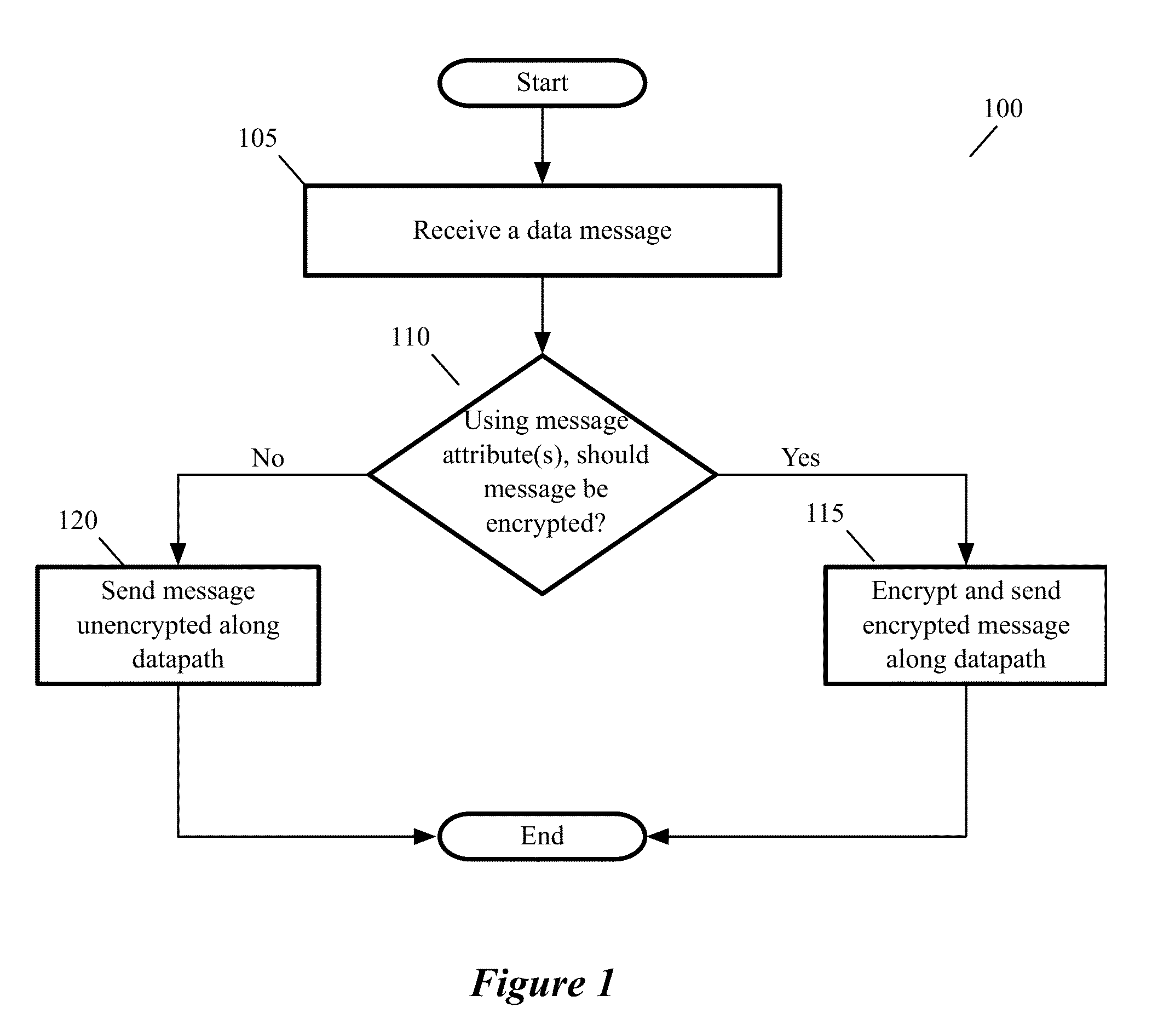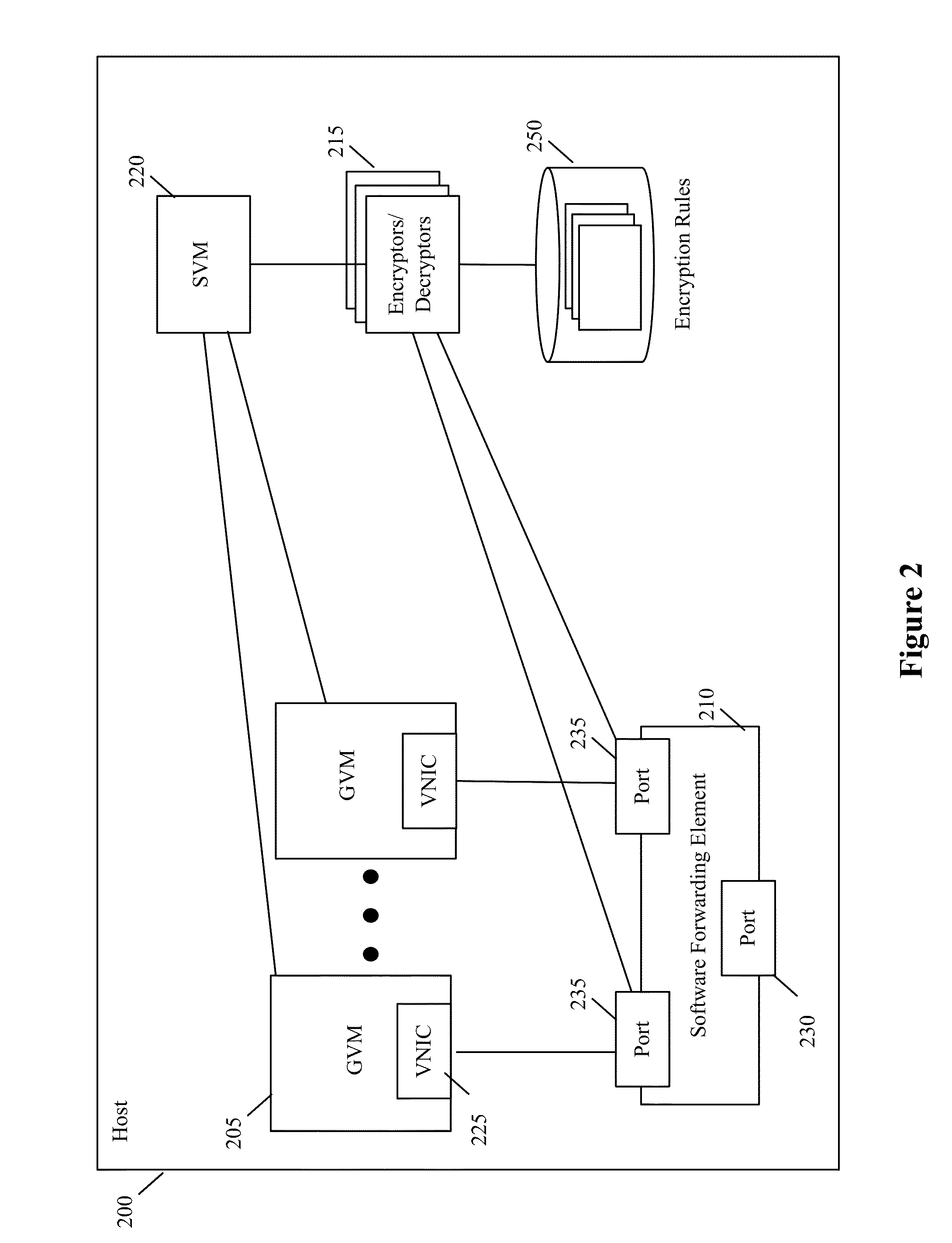Encryption Architecture
a technology of encryption architecture and key management, applied in the field of encryption architecture, can solve the problems of man in the middle attack, no longer assumed privacy guarantee of private datacenters, and easy to be attacked, and achieve the effect of avoiding the overhead of key management of n-to-n gvms
- Summary
- Abstract
- Description
- Claims
- Application Information
AI Technical Summary
Benefits of technology
Problems solved by technology
Method used
Image
Examples
Embodiment Construction
[0035]In the following detailed description of the invention, numerous details, examples, and embodiments of the invention are set forth and described. However, it will be clear and apparent to one skilled in the art that the invention is not limited to the embodiments set forth and that the invention may be practiced without some of the specific details and examples discussed.
[0036]For a host computing device (the “host”) that executes one or more guest virtual machines (GVMs), some embodiments provide a novel encryption method for encrypting the data messages sent by the GVMs. Examples of GVMs include webservers, application servers, database servers, etc. In some cases, all the GVMs belong to one entity, e.g., an enterprise that operates a datacenter with multiple hosts. In other cases, the host executes in a multi-tenant environment (e.g., in a multi-tenant data center), and different groups of GVMs belong to different tenants. As used in this document, encryption refers to the ...
PUM
 Login to View More
Login to View More Abstract
Description
Claims
Application Information
 Login to View More
Login to View More - R&D
- Intellectual Property
- Life Sciences
- Materials
- Tech Scout
- Unparalleled Data Quality
- Higher Quality Content
- 60% Fewer Hallucinations
Browse by: Latest US Patents, China's latest patents, Technical Efficacy Thesaurus, Application Domain, Technology Topic, Popular Technical Reports.
© 2025 PatSnap. All rights reserved.Legal|Privacy policy|Modern Slavery Act Transparency Statement|Sitemap|About US| Contact US: help@patsnap.com



